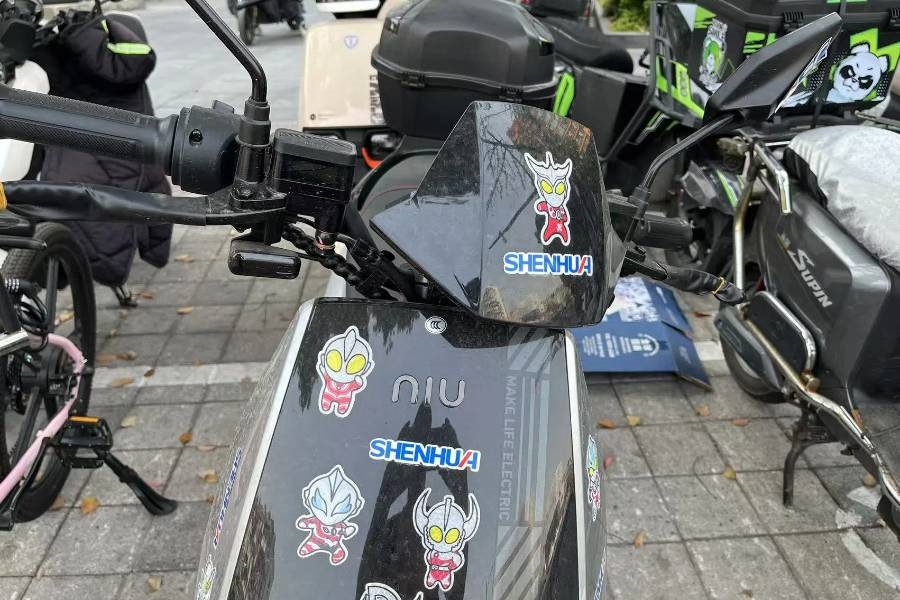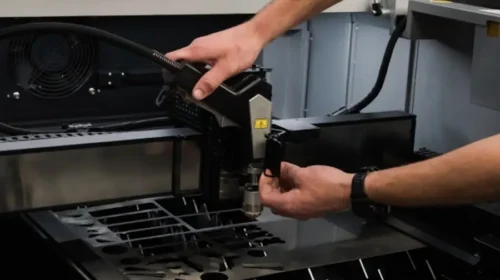Niu Technologies gets charge from China’s consumer trade-in program

The electric scooter maker’s China unit sales rose 66% in the first quarter, while its global sales grew by just 6% on tariff headwinds
Key Takeaways:
- Niu Technologies said its China e-scooter unit sales rose 66% in the first quarter, boosted by a government program to stimulate consumer spending
- The company’s international unit sales growth slowed to just 6% in the first quarter, as it faced tariff headwinds in the U.S. market
By Doug Young
Its name means “bull” in Chinese, and these days electric scooter maker Niu Technologies (NIU.US) is living up to that name, charging into some major headwinds overseas as a result of protective U.S. tariffs. But the company is also getting some nice tailwinds in its home China market from a government program aimed at boosting consumer spending.
Both of those elements were at the forefront of a first-quarter update from Niu last Friday, in which it said its China sales charged ahead by 66% in the three-month period, even as its international sales nearly ground to a halt with just a 6% rise. We’ll dissect both of these elements shortly, but first we’ll review the bigger picture for this company.
Niu has been a slightly lost bull these past few years, and is trying to find its way back to growth and profitability after slipping into the red and revenue contraction in 2022.
It has spent much of the last three years working on that by focusing on the premium end of its home China market that accounts for more than 85% of its sales and is especially competitive at the lower end of the market. Overseas the company has been more focused on building out its sales network by signing up more dealers and doing distribution deals with big-name retailers like Walmart in the U.S. and MediaMarkt in Germany.
As a result of those efforts, the company returned to revenue growth last year, as its annual revenue rose 24% to 3.29 billion yuan ($451 million). It is still losing money, though its loss narrowed in last year’s fourth quarter to 72.5 million yuan from 130 million yuan a year earlier. One of the two analysts polled by Yahoo Finance expects the company to return to profitability this year, while the other expects it to keep losing money.
The company’s return to the black is being hampered by falling gross margins as it grapples with stiff competition and also relies heavily on low-margin kick-scooters for a big part of its international business. Its gross margin was moving in the wrong direction last year, falling to 15.2% from 21.5% in 2023, including an even larger plunge to just 12.4% in the fourth quarter from 19.0% a year earlier.
Its early turnaround story has won mostly praise from the investment community, with three of four analysts polled by Yahoo Finance rating the company a “buy,” while the fourth rates it a “hold.” The company currently trades at a price-to-sales (P/S) ratio of just 0.56. But that’s ahead of most of its peers, including domestic rivals Luyuan (2451.HK) and Ninebot (689009.SH), which trade at even lower ratios of 0.52 and 0.31, respectively, and Vespa maker Piaggio (PIA.MI), which trades at just 0.38.
That shows this group is generally underappreciated by investors, perhaps due to the sector’s relatively low barriers to entry that have resulted in intense competition and low profit margins.
Trade-in dividend
With that background in mind, we’ll return to the company’s latest business update and why it looks generally positive for Niu’s core China business but is less upbeat for its global ambitions.
The company’s China scooter sales rose 66% year-on-year to 183,065 units in the first quarter, which is typically a slower period due to the Lunar New Year holiday. That strong growth extends a streak dating back to the fourth quarter of last year, when Niu’s unit sales rose by a similar 65.1% year-on-year. Before that, the company’s China unit sales posted much slower growth of 12.4% in the third quarter and 16.2% in the second.
Niu patted itself on the back by attributing the strong first-quarter growth to the “successful execution of our product and channel strategies.” But the bigger reason behind the strong gains is more likely related to one of China’s main programs to boost spending in the current sluggish consumer environment. That program offers government subsidies for consumers when they trade in various used products for new ones.
Launched last year, the program initially focused on big-ticket items like home appliances. But it has gradually moved down the food chain with expansion into other categories, including e-scooters starting last September. Following that expansion, China’s Commerce Ministry reported that nearly 900,000 new e-bikes and e-scooters were purchased through the trade-in program in December.
Niu seems to think this boost will continue throughout 2025, forecasting last month that its overall sales volume this year would rise between 40% and 70% to between 1.3 million and 1.7 million units.
While things looked strong at home for the company in the first quarter, the opposite was true for Niu’s international segment, whose first-quarter unit sales rose just 6% year-on-year to 20,248 units for the period. That marked a sharp slowdown from 2024, when international unit sales rose by 45% or more every quarter.
The company didn’t comment on the slowdown in its latest announcement. But it was quite vocal in its latest earnings call last month on the effects of a new 25% tariff imposed by the U.S. last September on Chinese imports by the administration of former President Joe Biden. To get around that, the company set up a manufacturing facility in Southeast Asia that started producing in the second half of last year.
But that workaround has obviously become obsolete under the latest tariffs announced last week by resident Donald Trump, which apply not only to China but to nearly every country that conducts significant trade with the U.S. Niu doesn’t say how much of its overseas business goes to the U.S., but it has previously named the country, along with Germany, Italy and France, as its major overseas markets. It has also named U.S. retailing giants Walmart and Best Buy as two of its important overseas partners.
All things considered, 2025 is shaping up as a relatively strong year for Niu due to its solid prospects in China, despite the cloudy outlook overseas. Investors seem to like that story, with Niu’s stock up 70% so far this year, even after a selloff that saw it drop 28% over the last five days during the global market rout after Trump’s new tariff announcement last week.
To subscribe to Bamboo Works free weekly newsletter, click here





